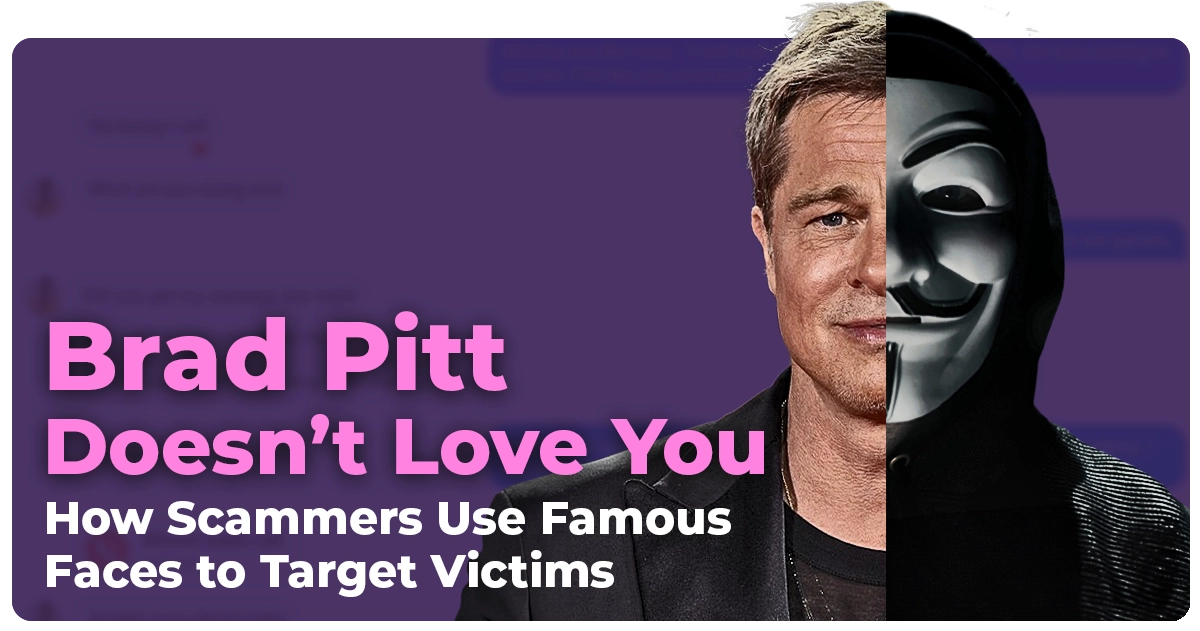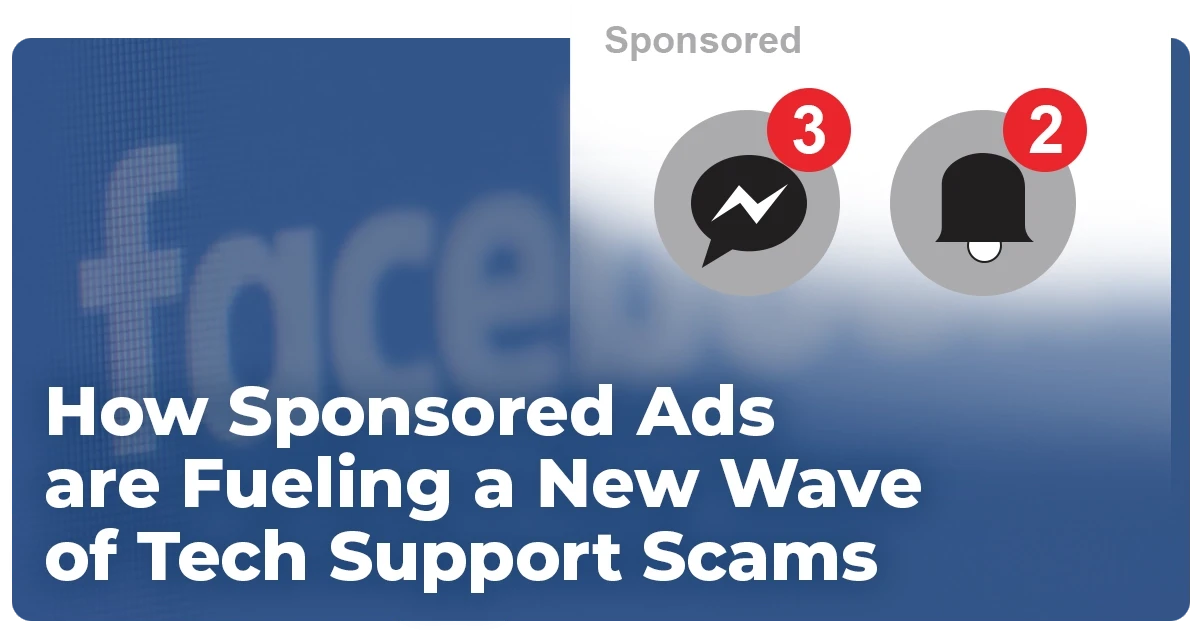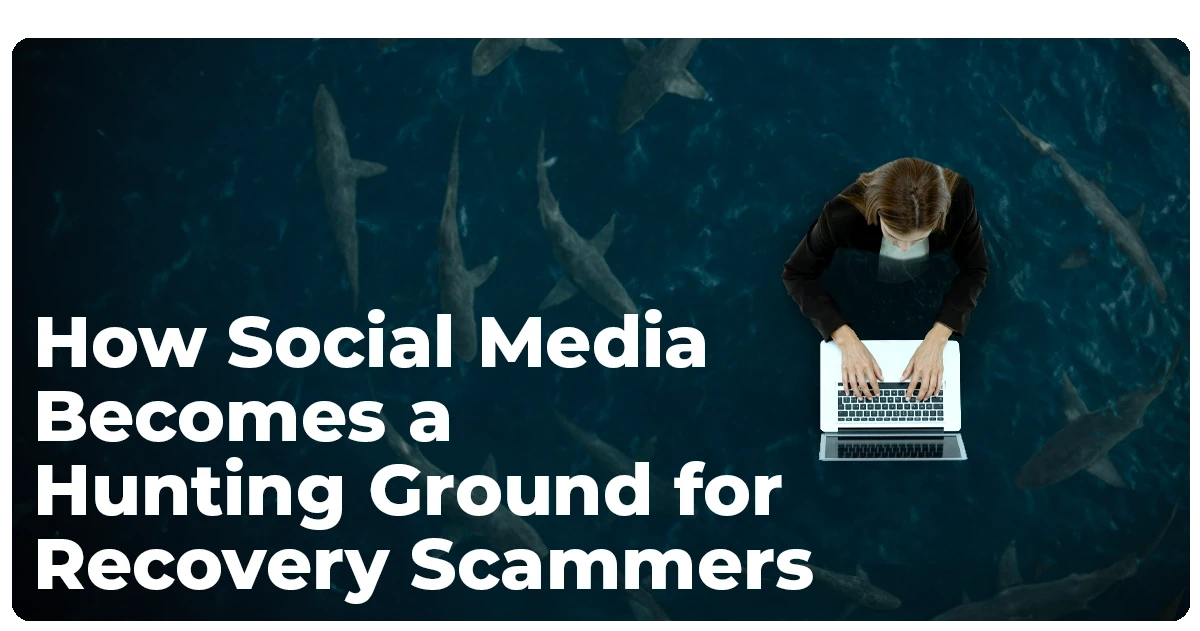Scammers aren’t trying to fool everyone. They spend their time casting a wide net, looking for the one person who hesitates for just a moment and wonders, what if this is true? The message might feel oddly personal. Maybe it comes at a lonely moment. Maybe it sounds just believable enough to catch your attention, or piques your curiosity enough to respond.
Celebrity imposter scammers seize that moment, and while receiving a message from a famous star, actor, musician, or athlete may sound pretty far-fetched, it’s the sliver of a possibility of it being real that often seals the deal for scammers.
These scammers use fake profiles and stolen pictures, paired with a story that’s convincing enough to build trust. They want victims to lock in and believe they’ve formed a genuine connection with someone famous, even if the relationship has to remain a secret.
The fallout is devastating. Victims don’t just lose time and money; they often walk away emotionally shattered, embarrassed, and isolated.
The Rise of Celebrity Imposter Scams
Victim losses are nothing to laugh at. Imposter scams, which include scammers posing as celebrities, as well as known companies, government agencies, banks, even friends or family members, remain in the top three reported complaints to the Federal Trade Commission. In 2024 alone, imposter scams cost victims $2.952 billion, with a median loss of $800.
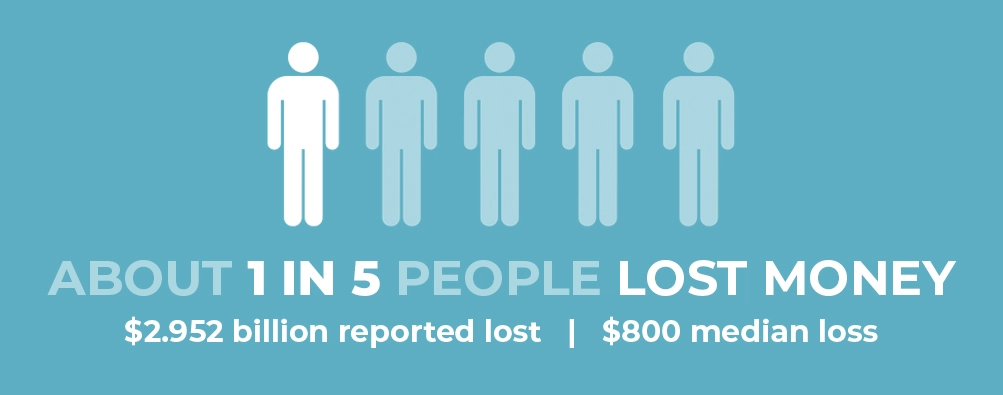
The Roll of Social Media Platforms
Celebrity imposter scams aren’t going away anytime soon, and one major reason is the failure of social media platforms to take action and crack down on fraudulent accounts. According to the FTC, 70% of victims who reported a scam loss were first contacted through social media.
Do a quick search for any celebrity – Brad Pitt, for instance – a musician, sports star, or even a YouTuber, and you’ll find dozens, sometimes hundreds, of fake profiles. These impersonators often claim to be using a backup account, running a private fan page, or chatting from a secret profile because they want to “keep a low profile.”
The problem worsens when a celebrity doesn’t have an official social media presence. Without a verified account, it can be hard for fans to tell who’s real and who’s not. Even when verification exists, it doesn’t always help. Some platforms now allow anyone to buy a blue checkmark, no questions asked. That means scammers can look just as “official” as the real thing.
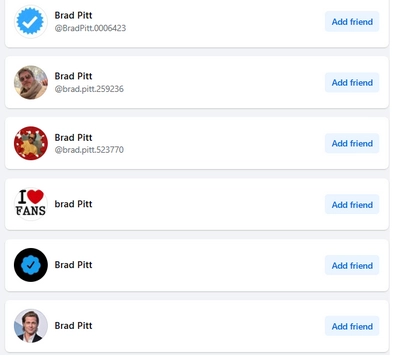
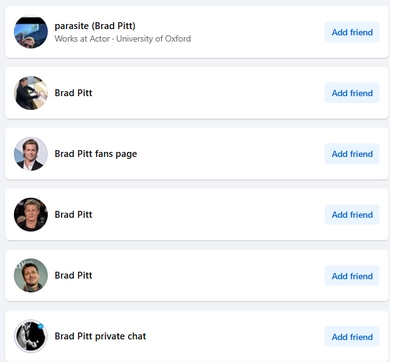
Despite countless reports from users, these fake accounts often remain active for weeks, months, or even years. Social media companies claim to have policies against impersonation and fraud.
Platforms like Meta have policies that ban impersonation. The Account Integrity policy, as well as their Authentic Identity Representation policy, forbids users from “impersonating others by using their likeness, photos, or other identifying characteristics to pretend to be that person, or assume to be or speak on behalf of a person or entity, for whom the user is not authorized to do so.”
But policies mean little if they aren’t enforced. Even when users report these accounts, platforms are slow to respond, if they take action at all. They enable these scams and walk away unpunished.
If you have taken the time to report a fake account like we have, you’ve likely received an automated response stating that the profile “does not violate community guidelines.” Meanwhile, legitimate users can find themselves suspended for unknown rule violations, making it clear that these platforms prioritize automated moderation over any kind of meaningful user protection.
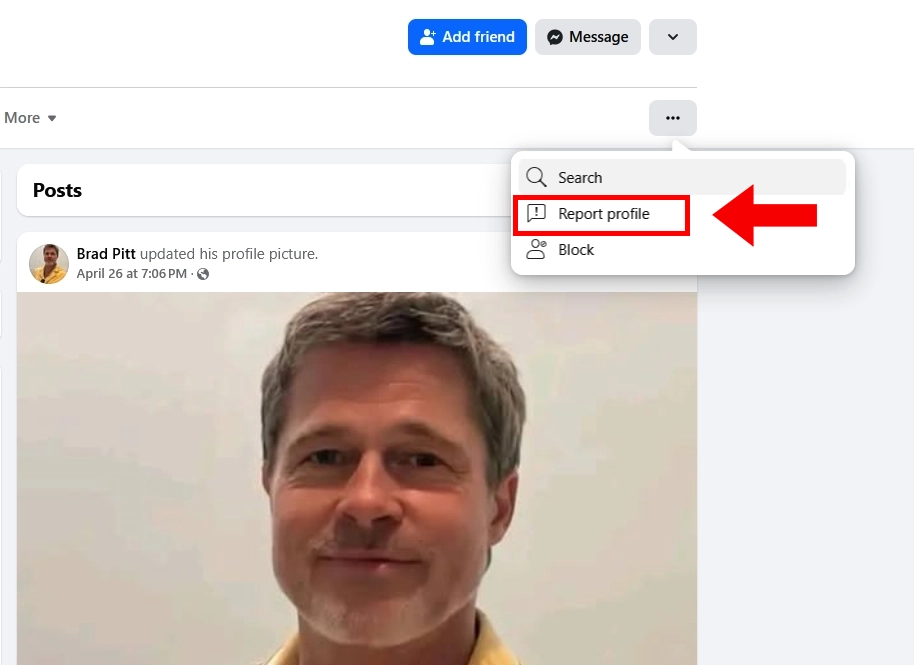
The unfortunate truth is that for these social media platforms, there is no incentive to enact any sort of aggressive scam prevention. As sickening as it is, social media companies actually profit from users interacting with scammers. The longer users engage with content – sending messages, commenting, reacting, and sharing posts – the more it boosts metrics and feeds the algorithm.
The more data the platform can collect from you, the more ads they can serve you to make them more money. It’s evident they don’t care about the safety of their users – they simply care about the bottom line that benefits from user engagement, even if that engagement comes from a scam.
When Curiosity Turns Costly
It’s far too easy to roll your eyes and assume only the most gullible people fall for celebrity imposter scams, and that it could never happen to you, but that just isn’t true. Scammers are professional manipulators and many victims just get caught up in the moment. Scammers know exactly what to say, when to say it, and how to gain the victim’s trust.

Imposter scammers prey on loneliness, fantasy, and the thrill of something normally out of reach unless you fall among the rich and famous – having a personal connection with a celebrity. These scammers are often masters of the long con, sometimes spending months building an emotional connection before bringing up money.
Many victims begin these interactions out of simple interest. Perhaps they respond out of disbelief or bemusement thinking, what if? The key to this scam is the slow build. The scammer offers companionship and emotional support and, over time, creates what feels like a very real connection for the victim by making them feel seen, understood, even loved. Once emotions take hold, logic often takes a back seat.
That’s when the financial requests begin. The scammer may claim they’re stuck on a movie set in a foreign country and can’t access their own money, or they need funds for a private charity project or a legal dispute. They promise the victim they’ll pay them back as soon as they can. By this point, victims aren’t just sending money to a stranger. They’re trying to help someone they believe in and care about.
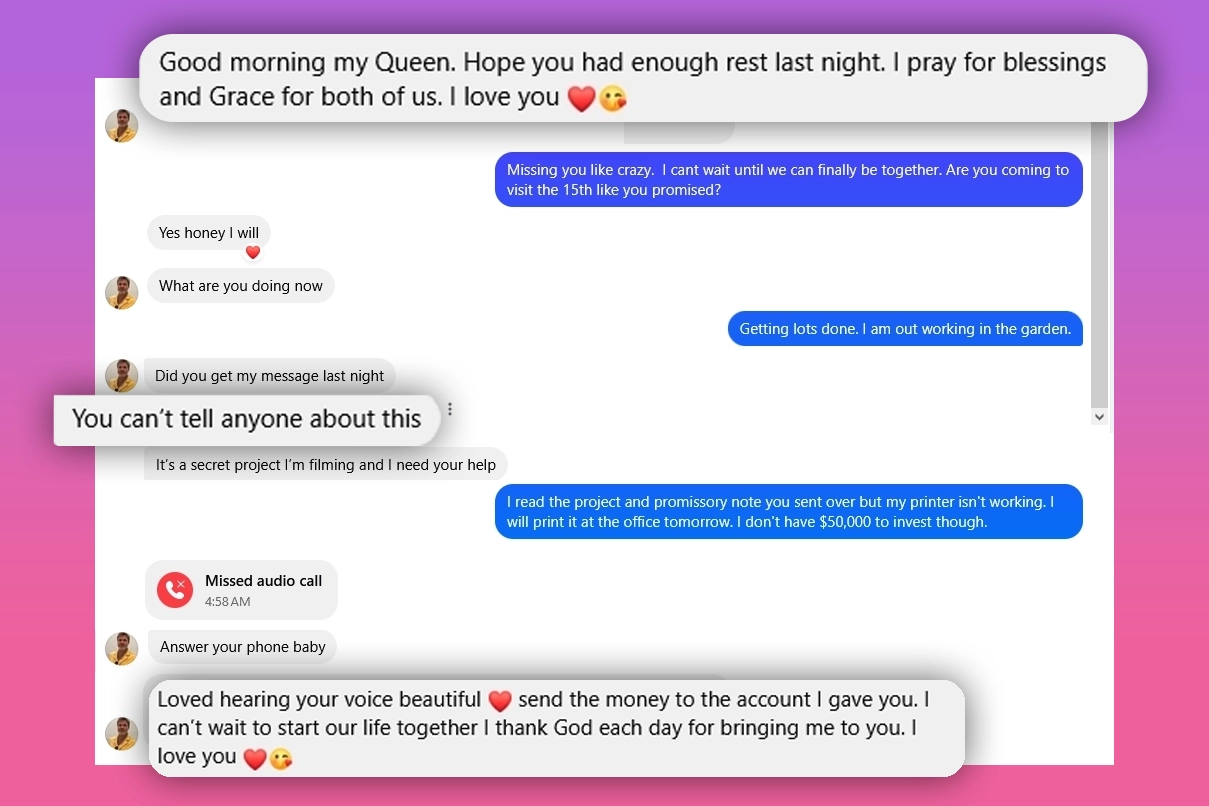
Victims genuinely believe they have found a deep connection, or even love, which makes it incredibly hard to walk away, even when the red flags start to appear. Even if friends or family try to intervene, the victim may be so deeply invested and unwilling to accept they have been deceived. They may even defend the scammer or completely shut down.
In especially heartbreaking cases, victims may accept that the scammer isn’t the famous person they’ve been led to believe, but will continue with the relationship anyway because they crave companionship.
A Note on "Membership" and Fan Club Scams
Not all celebrity imposters spend months building a relationship. Some go straight for the wallet by asking victims to buy a special “membership card,” “VIP badge,” or “exclusive fan club access" to prove their loyalty or unlock a private chat with the celebrity. These are scams. Real celebrities don’t require payment to interact with fans, especially through private chats. If you’re being asked to buy anything in exchange for access, take a step back before reaching for your wallet.
What About Celebrities on Cameo or Fiverr?
Some celebrities do offer paid content like personalized video messages through platforms like Cameo or Fiverr, and that’s perfectly legitimate. The key difference is that it’s done through a verified, public-facing platform. You’re not getting a random message from someone claiming to be that celebrity or being told to pay via gift cards or cryptocurrency, and you’re certainly not being drawn into a secret relationship or pressured to pay outside the app.
The Red Flags of Celebrity Imposter Scams
If you’re wondering whether that celebrity that slid into your DMs is real, here are some clear warning signs:
They contacted you first. Celebrities don’t randomly message fans asking to chat.
They avoid video calls. They’ll make excuses about privacy, bad connections, or busy schedules.
They claim they have no access to their own money. Celebrities have teams of people managing their finances - no celebrity is going to ask a fan for financial help.
They try to move conversations off social media. Scammers often try to move chats to private messaging apps like WhatsApp and Telegram where it’s easier for them to remain anonymous.
They convince you to keep the situation secret. Scammers want you isolated. They know that the more people you talk with, the more likely you are to hear the truth and question what is happening. If you stay silent, they stay in control.
If a famous celebrity truly wanted to date you, they wouldn’t be sliding into your DMs and definitely would not be asking for money. Many celebrities don’t even manage their own social accounts. If you truly believe you’re communicating with a celebrity, go to their official website and contact their management team to confirm.
While individuals must remain vigilant, social media platforms also need to be held accountable for their role in the scam epidemic. Until these platforms enforce their own policies and protect their users, scammers are going to continue to exploit the system.
The unfortunate reality is that this is just the start of things. With advancements in AI and the ability to use AI-generated messages, voices, and videos to impersonate celebrities, this problem is going to get so much worse. The new scam frontier is here and it’s only getting harder to tell what’s real online.
Brad Pitt may not love you, but he would want you to stay safe online.
- The Seraph Secure Team

